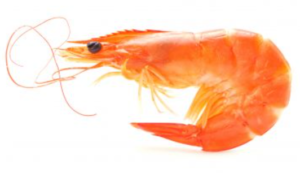As a follow up to my article about when you should consider increasing your protein intake, here is a list of protein-rich foods.
- Chicken Breast (skinless, cooked): 30 grams of protein and about 165 calories per 100g.
- Turkey Breast (skinless, cooked): about 30 grams of protein and approximately 135 calories per 100g.
- Tuna (tinned in water): approximately 30 grams of protein and roughly 116 calories per 100g.
- Shrimp (cooked): around 30 grams of protein and approximately 99 calories per 100g.
- Cod (cooked): typically provides 30 grams of protein and about 82 calories per 100g.
- Tofu (firm, cooked): A 100g serving usually contains around 8-15 grams of protein and about 144 calories. You would need about 200 grams of tofu to reach 30 grams of protein (288 calories).
- Tempeh (cooked): generally provides around 18-20 grams of protein and about 193 calories per 100g.
- Seitan (cooked): contains around 25-30 grams of protein and approximately 120-150 calories per 100g.
- Cottage Cheese (low-fat or non-fat): a 100g serving generally contains about 11-12 grams of proteins and approximately 60 calories.
Other foods that are a good source of protein include eggs, lean beef and pork, game meat and offal.
Legumes such as lentils, chickpeas, black beans… are rich in amino acids like lysine but low in methionine and cysteine. Combining legumes with carbohydrates like rice or grains, which are rich in methionine and cysteine, is a common way to create a complementary protein source that provides all the essential amino acids your body needs. For example: mujadara (lentils and rice), beans on toast, peanut butter and whole wheat bread, hummus and pita bread. quinoa and chickpeas etc.
A note on nutrition claims to finish: a food is high in protein if at least 20% of the energy content of the food is provided by protein. A food is a source of protein when 12% of the energy value of the food is provided by protein.
